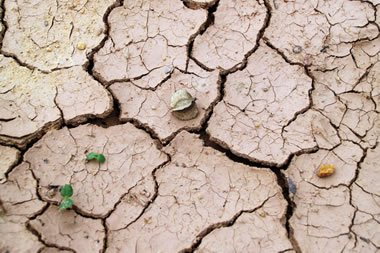Are You at Greater Risk from Legionnaires Disease in Hot Weather?

Do hosepipe bans, the use of water butts and hot weather increase the risks from Legionnaires’ disease in the garden?
Recent research undertaken by scientists at the Porton Down facility working for Public Health England revealed the alarming extent to which Legionella bacteria is multiplying in the average back garden in Britain. The scientists discovered 107 water butts tested for the presence of Legionella bacteria tested positive, with only half a dozen passing the test.
Legionella bacteria grows rapidly in warm, stagnant water
Garden water butts sit in the sun for long periods, meaning the stagnant water inside has a chance to warm up sufficiently for the bacteria to multiply, typically above 20oC. A similar scenario has been seen to occur with hosepipes that are left full of water out in the sun. A man who used his hose to wash off his patio later fell ill and died from Legionnaires’ disease. He is thought to have inhaled the bacteria via the spray from the hose.
Will hosepipe bans increase the chances of legionella bacteria multiplying?
The UK is going through a period of warm – even hot – weather that has now lasted for several weeks. It shows no signs of abating either, despite the odd thunderstorm here and there.
In recent days, news of the first hosepipe ban has reached the media and the public. If the dry weather continues, this ban could spread to include other areas. It means there is an increased risk of legionella being able to multiply in unused hosepipes left out in the sunshine. Gardeners are also more likely to turn to their water butts as an alternative to the garden tap.
How can you make sure your own hosepipe is safe to use?
You cannot easily clean the inside of a hosepipe, so steps must be taken to minimise the risk posed by it. Drain as much water out of it as you can prior to storing it away. If you can store it out of the sun to avoid it being exposed to high levels of heat, you should do so.
When you do come to use it again, turn on the source of water (a garden tap) very slowly to avoid creating a spray. Allow the water to run through the pipe for a few minutes – this will help flush it out before you use a spray attachment on it. If you can avoid using a spray attachment or creating a spray even better.
Legionella bacteria are far more likely to cause health issues if you inhale the water spray or mist your garden hose creates. Therefore, by storing the hose properly then flushing it thoroughly before you use it with a spray attachment; you should be a lot safer. Since legionella spreads more readily in stagnant water, flushing it through is the best course of action.
Legionella and water safety specialists
Our teams of water safety specialists support those responsible for the control of waterborne pathogens including Legionella bacteria in the workplace, helping them to protect their people and meet their health and safety obligations in this specialist area. We deliver professional water safety legionella risk assessments, water testing, independent compliance auditing, City & Guilds training and other environmental risk management services that help keep staff, students and others safe.
If you have questions about any of the issues raised above or you would like to speak with one of our legionella specialists please call us today on 0330 223 36 87 or contact us here.


